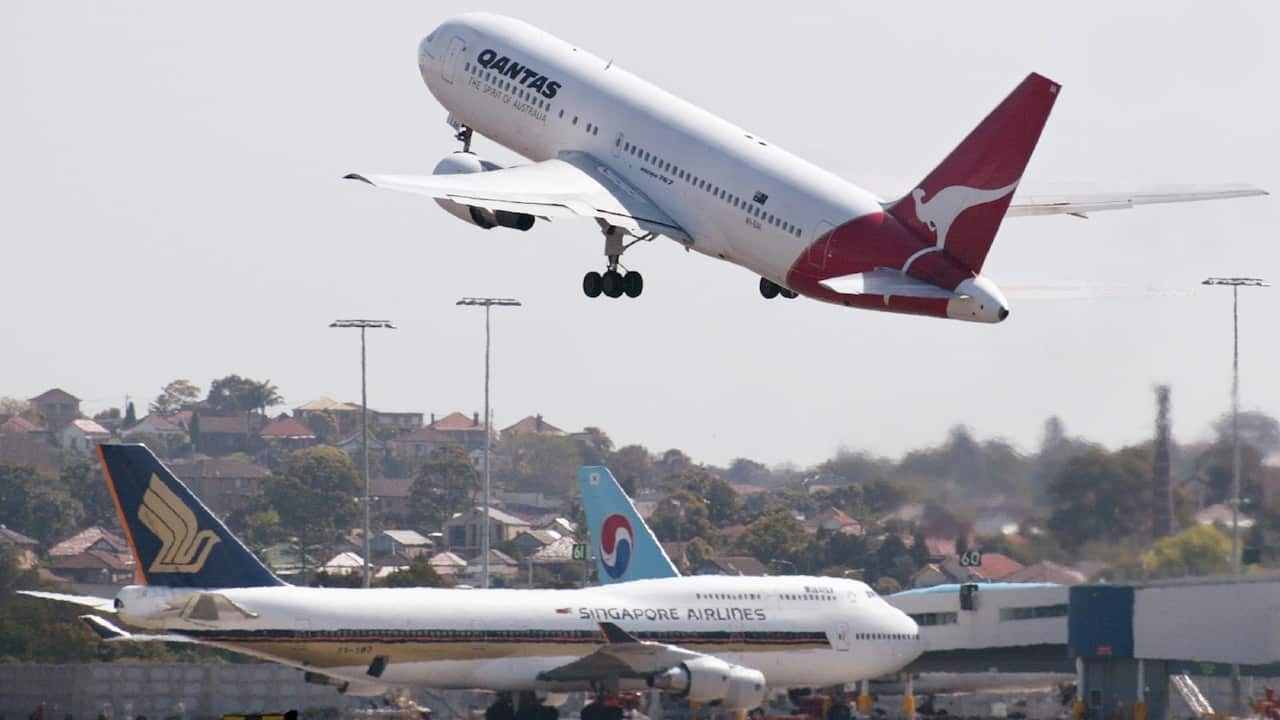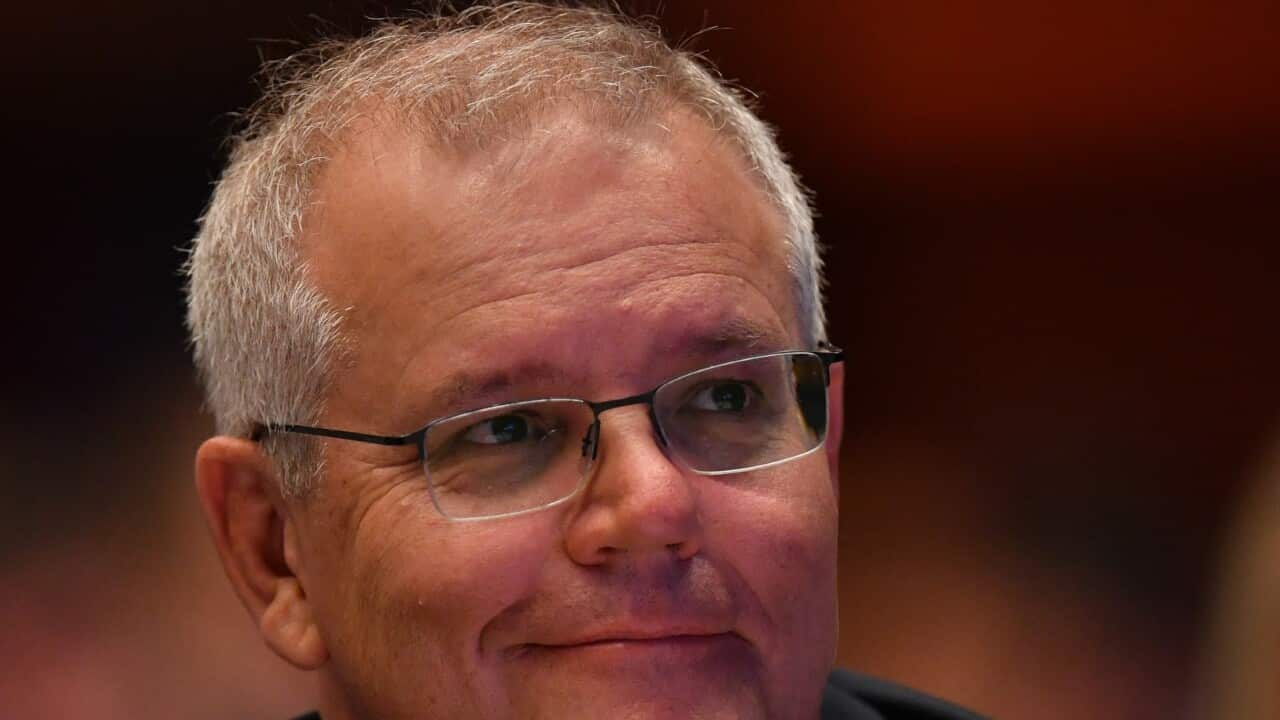Highlights
- PM Scott Morrison is likely to hold a meeting of national cabinet on Tuesday
- Department of Home Affairs suggests travel exemption doesn't apply to those on a bridging visa
- States are considering mandatory quarantine in wake of Omicron strain of coronavirus
Australia's National Security Committee has decided to delay the reopening of borders until 15 December.
"The reopening to travellers from Japan and the Republic of Korea will also be paused until 15 December," a late statement from the government noted.
The Australian government said it will use this time to gather data on the Omicron variant, including the vaccine's efficacy and level of transmission.
On 22 November, Prime Minister Scott Morrison had announced that fully vaccinated eligible visa holders, including international students, skilled migrants, humanitarian, working holiday maker and provisional family visa holders, can travel to Australia without having to apply for an exemption fro, 1 December.
Australia's border is currently closed to travellers except for fully vaccinated Australian citizens, permanent residents and immediate family, as well as fully vaccinated green lane travellers from New Zealand and Singapore and limited exemptions.
Before the late evening announcement, the Department of Home Affairs had clarified rules regarding those on bridging visa wanting to travel overseas.
Onshore temporary migrants who are currently on bridging visas have been suggested to seek an inward travel exemption if they plan on travelling overseas.
A Department of Home Affairs spokesman said eligible temporary visa holders do not need an exemption to depart Australia.
"They can leave at any time, as long as border restrictions in their home country allow them to return," the spokesperson told SBS Hindi in a written statement.
But the spokesperson clarified 'travellers who are not in an exempt category will continue to need to apply for an exemption from the Australian Border Force Commissioner before they can travel to Australia'.
Some of the eligible visa holders include subclass 457 (Temporary Work Skilled visa), subclass 476 (Skilled – Recognised Graduate visa), subclass 485 (Temporary Graduate visa) and subclass 500 (Student visa).
However, the current list of doesn't mention bridging visas. The department said there are other travel conditions attached to the bridging visa holders as well.
The department said there are other travel conditions attached to the bridging visa holders as well.

Prime Minister Scott Morrison to hold a national cabinet meeting with chief ministers and premiers regarding the Omicron strain of coronavirus. Source: WILLIAM WEST/AFP via Getty Images
"If you currently hold a bridging visa A, B or C, this will allow you to stay in Australia while your existing visa application or review is being processed," the department's confirmed.
"However, if you have no pending immigration decisions or reviews and you cannot depart Australia, you should apply for a new visa to keep you lawful.
"If you are a bridging visa A or C holder and you depart Australia, your bridging visa A or C will cease. If you want to return to Australia in the future, you will need to apply for another visa to allow you to return," the statement read.
The Department further noted that 'bridging visa A holders may instead consider applying for a bridging visa B before they leave Australia.
'Bridging visa B applications continue to be processed. However, bridging visa B holders will be denied entry to Australia until travel restrictions are lifted, unless an exemption applies.' University of Technology Sydney student Taniya Jamwal, currently on a bridging visa, said she has already booked her tickets to India for 20 January.
University of Technology Sydney student Taniya Jamwal, currently on a bridging visa, said she has already booked her tickets to India for 20 January.

International student Taniya Jamwal had applied fives times for exemption to visit her ailing mother. She is now on bridging visa and unsure about her travel to India. Source: Supplied by Taniya Jamwal
"I'm not sure whether I would be able to travel. I will now apply for a bridging visa B next month as advised by my migration agent," Ms Jamwal told SBS Hindi.
Ms Jamwal, who wanted to visit her ailing mother in India, had her travel exemption request rejected five times while on an international student visa. That was before PM Morrison made the announcement on 22 November.
On Monday, Federal Health Minister Greg Hunt said there was no change to the government's except regarding the nine countries in southern Africa.
"As we approach Christmas, know that out of all of the countries in the world, Australia is as well prepared as anybody," Mr Hunt said.
The federal government has from South Africa, Namibia, Zimbabwe, Botswana, Lesotho, Eswatini, Seychelles, Malawi and Mozambique from entering Australia.
PM Morrison, state premiers and chief ministers are likely to hold a meeting of national cabinet Tuesday afternoon to discuss the new Omicron strain of coronavirus as states are reconsidering mandatory quarantine requirements.
The information provided in the article is generic and is not a substitute for professional advice. Always seek the advice of a registered migration agent and the Department of Home Affairs in such matters.






